[Newsbits] 30.08-4.09.2024: AgriSURE Fund, EShram Portal & More
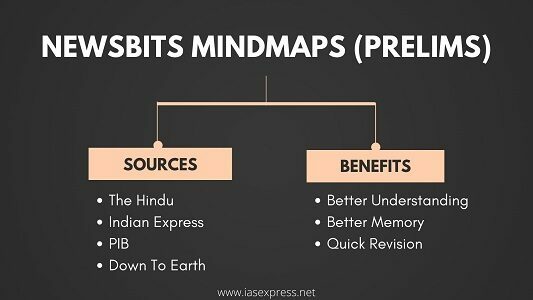
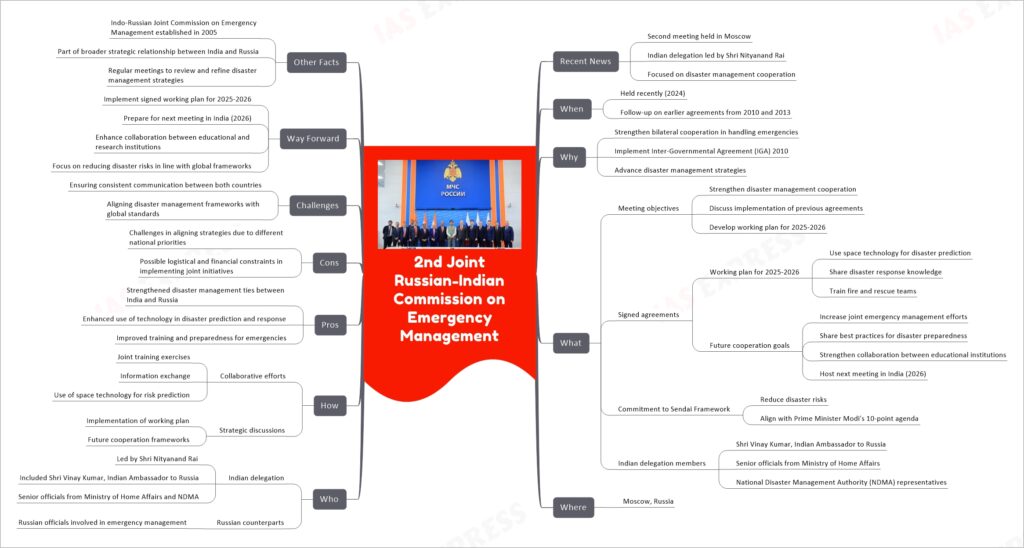
The second meeting of the Joint Russian-Indian Commission on Cooperation in Emergency Management was held in Moscow, focusing on enhancing bilateral cooperation in disaster management. Led by Shri Nityanand Rai, the Indian delegation aimed to implement past agreements and signed a working plan for 2025-2026. The plan emphasizes the use of space technology for disaster prediction, sharing knowledge, and training fire and rescue teams. The meeting reaffirmed India’s commitment to the Sendai Framework and set the stage for future cooperation, including hosting the next meeting in India in 2026. The commission, established in 2005, continues to strengthen the strategic relationship between the two countries through regular collaboration.
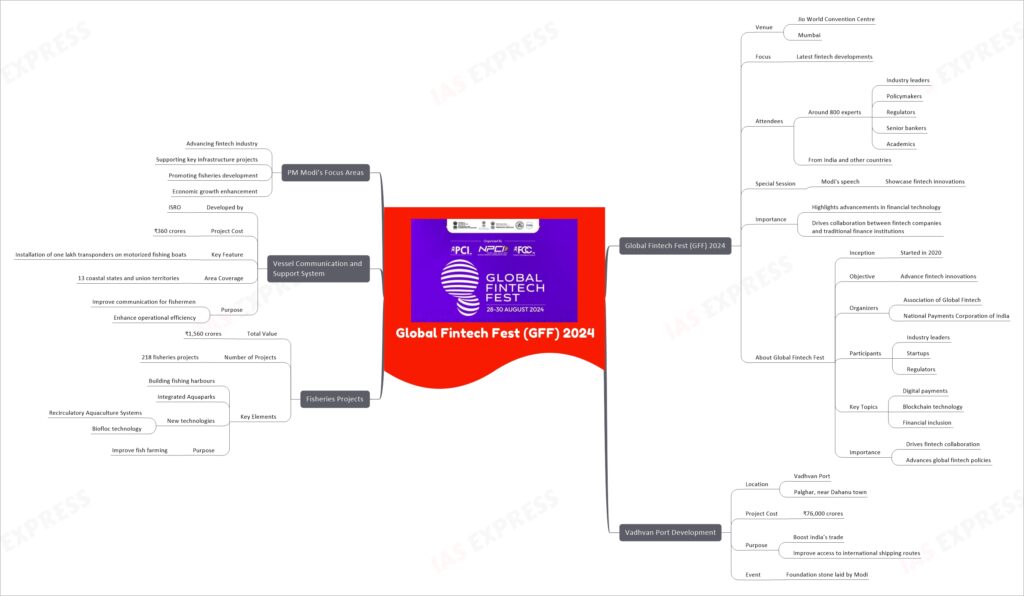
The Global Fintech Fest 2024 in Mumbai will focus on the latest innovations in financial technology, featuring industry leaders and experts from India and abroad. Alongside fintech advancements, PM Modi will lay the foundation for the ₹76,000 crore Vadhvan Port project and inaugurate over 218 fisheries projects worth ₹1,560 crore to boost fish farming. He will also launch ISRO’s ₹360 crore Vessel Communication and Support System to improve communication for fishermen in India’s coastal areas. These initiatives underscore India’s drive towards economic growth through fintech, infrastructure, and fisheries development.
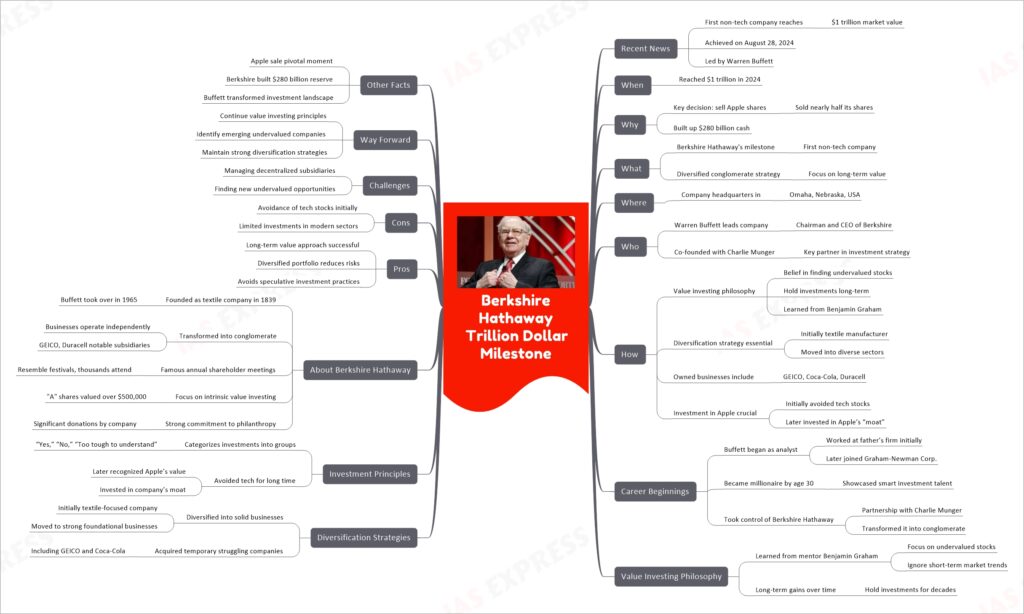
Berkshire Hathaway, led by Warren Buffett, became the first non-tech company to reach a $1 trillion market value in 2024. This milestone followed key decisions like selling half its Apple shares and diversifying its investments. Founded in 1839 as a textile company, Buffett transformed it into a conglomerate owning businesses like GEICO and Coca-Cola, guided by value investing principles. His disciplined approach, focusing on long-term gains and diversification, cemented Berkshire Hathaway’s position as one of the world’s most valuable companies.
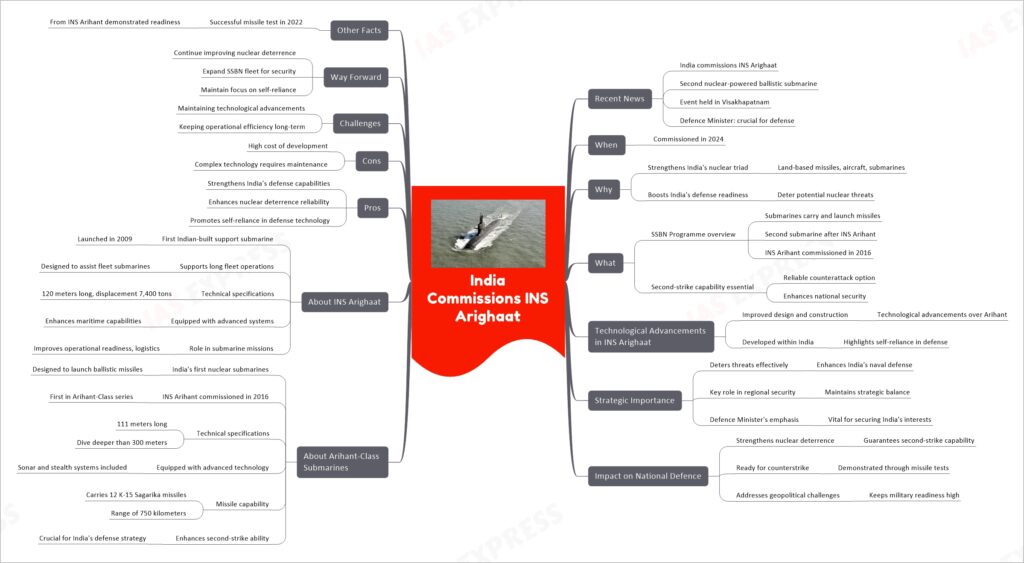
India has commissioned its second nuclear-powered submarine, INS Arighaat, enhancing the country’s defense capabilities. Part of the SSBN program, this submarine strengthens India’s nuclear triad by ensuring a reliable second-strike capability. Developed with advanced technologies and self-reliance, INS Arighaat plays a crucial role in India’s defense strategy, bolstering both regional security and India’s maritime strength. This marks a significant step in maintaining military readiness in a complex geopolitical environment.
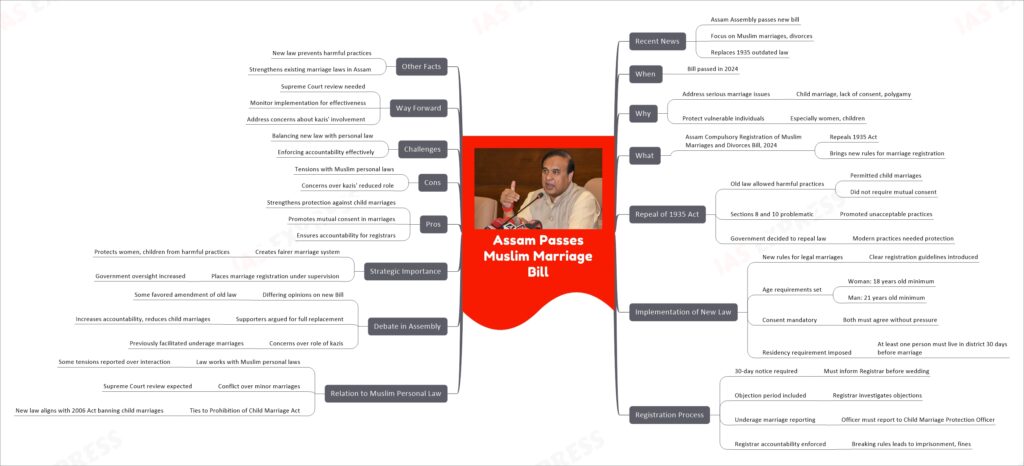
The Assam Assembly passed the Assam Compulsory Registration of Muslim Marriages and Divorces Bill, 2024, replacing a 1935 law. The new law addresses issues such as child marriage, lack of consent, and polygamy by setting strict guidelines for marriage registration, including age requirements, mutual consent, and a 30-day notice period. While it aims to protect vulnerable individuals, tensions with Muslim personal laws have arisen, particularly over the definition of valid marriages involving minors. The bill strengthens protections and enforces accountability for registrars, but further legal review is expected.
If you like this post, please share your feedback in the comments section below so that we will upload more posts like this.
